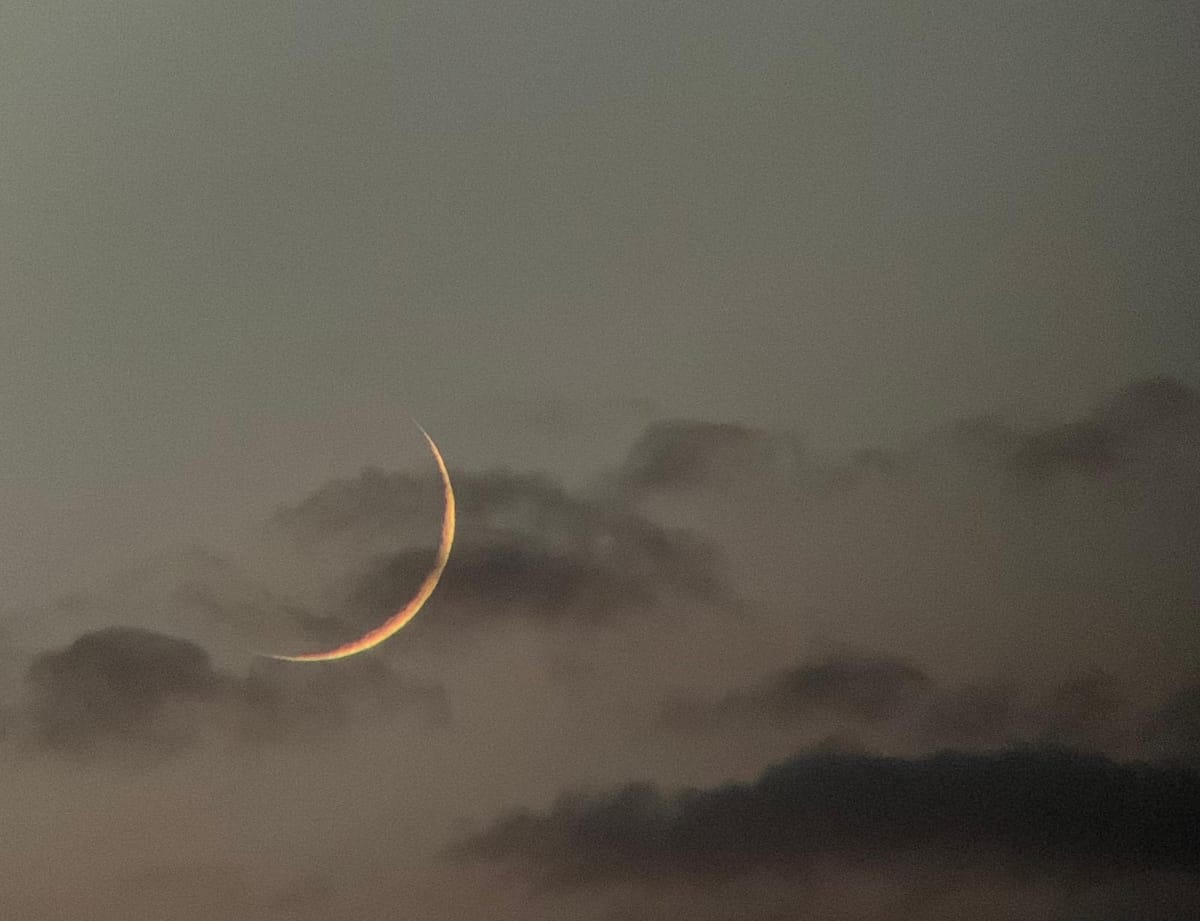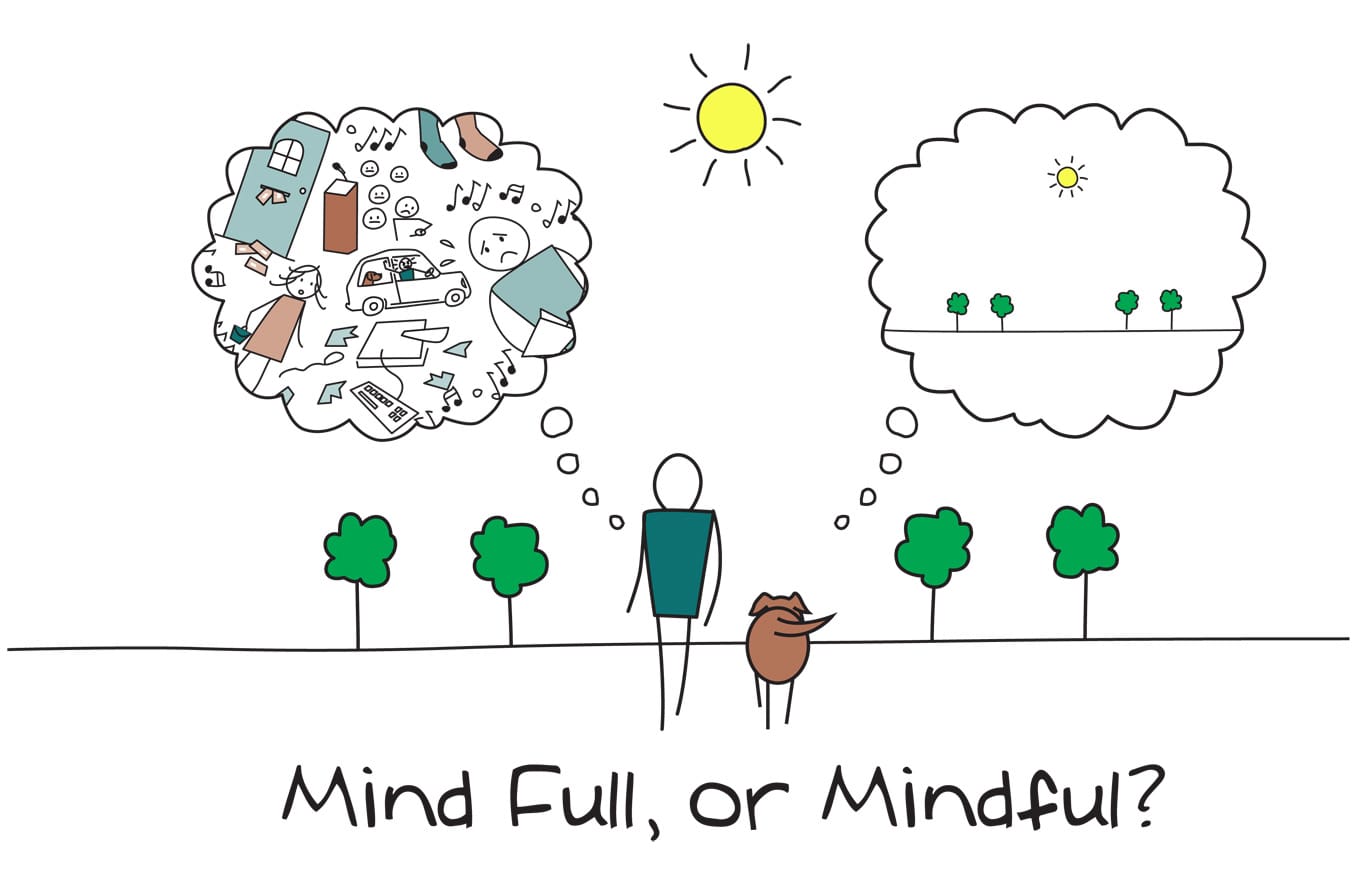Is it a new moon if you can't see it?
A moonlit walk with Einstein, lunar phases in wisdom traditions, moonsighting in Islam, and the face of god.

Cosmos moment: New moon. Sun slow (clock ahead of sun).
It was around 1950. Albert Einstein and Abraham Pais were both working at The Institute for Advanced Study in Princeton, New Jersey, refugees of World War II. One evening, Pais was walking Einstein home from work. The moon was out. Einstein stopped, turned to Pais, and said, “Do you really believe that the moon exists only if you look at it?”
Pais was doing important work in quantum theory, a new field that was starting to challenge parts of Einstein’s theory of relativity. When Niels Bohr, a leading mind in quantum theory heard about Einstein’s question, he replied: “You cannot prove the moon does not exist when unobserved.”

According to wisdom traditions, they are both right: looking at the moon doesn’t mean we understand it, AND yet, the only way to understand the moon is to look at it and see it. The difference is between looking and seeing, between being and existing. As the prophet Isaiah put it:
The Lord said, “Go! Tell my message to those people: ‘You will continue to listen, but you will never understand! You will continue to look, but you will not see anything!’”
Our own reality, or real reality?
The difference can be found in the mind: we can either be mindful, or we can have a full mind. We can either exist, or we can be. Which do we prefer? Our own reality? Or the true nature of reality?

The moon and its phases – especially the new moon – figures into most every wisdom tradition one way or another.
- In Hinduism, many festivals are observed on new moon, including Diwali (“the festival of lights”), and many Hindus fast on new moon.
- Jews assemble to bless the new moon (Rosh Hodesh), “reciting a psalm that firmly establishes God as the author of the natural order, noting that the sun, moon, and stars do God’s will reliably (implying that we should too).”
- In the Christian calendar, “the date of Easter is determined as the first Sunday after the ‘[Passover] full moon’ that falls on or after March 21.”
The funny thing, however, is that many traditions determined the new moon not by mere calculation, but by sight. For the ancient Israelites, “Rosh Ḥodesh was determined by observing when the first sliver of the new moon appeared.”
And even today, in Islam, the lunar Hijri calendar retains an observational definition of the new moon ...
“marking the new month when the first crescent moon is seen, and making it impossible to be certain in advance of when a specific month will begin (in particular, the exact date on which the month of Ramadan will begin is not known in advance).”
This seems like a brilliant way to keep people attuned to the cycles of the moon and the rhythms of nature. Can you imagine, for example, if the date of Christmas was not known every year? Or the date of Passover? In other words, can you imagine if those dates depended on seeing the first crescent moon, in order to fix the date of the holiday?

This is not to say that one method is better than another. It’s just to say that all wisdom traditions are alive to the moon, as long as they understand it and observe it in ways aligned with tradition and wisdom. Does that mean if a tradition fails to observe the moon and falls short in its understanding of it, maybe that tradition has lost some of its luster? I think so.
BTW, being attuned to the moon does not mean worshipping it. As the Quran says:
“Among His signs are the night and the day, and the sun and the moon. Do not prostrate yourselves to the sun, or to the moon. And prostrate yourselves to Allah who has created them, if it is Him whom you worship.” [41:37]
A Talmudic rabbi makes a similar connection: “one who blesses the New Moon is regarded as one who greets the Shekhinah (the face of God).”
So what does that make one who does not bless the new moon?
The converse, to my mind, is “one who does not bless the new moon is one who ignores the face of god.” Why would anyone want to ignore the face of god? Maybe because if we see the face of god we will die, not a physical death, but die to our ego. And who wants to do that? I do. Why?
Do you really believe the ego does not exist if you are not looking at it? Yes. : )
And if we disregard – or better yet, dissolve – the ego, what will we see? The true nature of reality, maybe even the new moon.

Comments ()